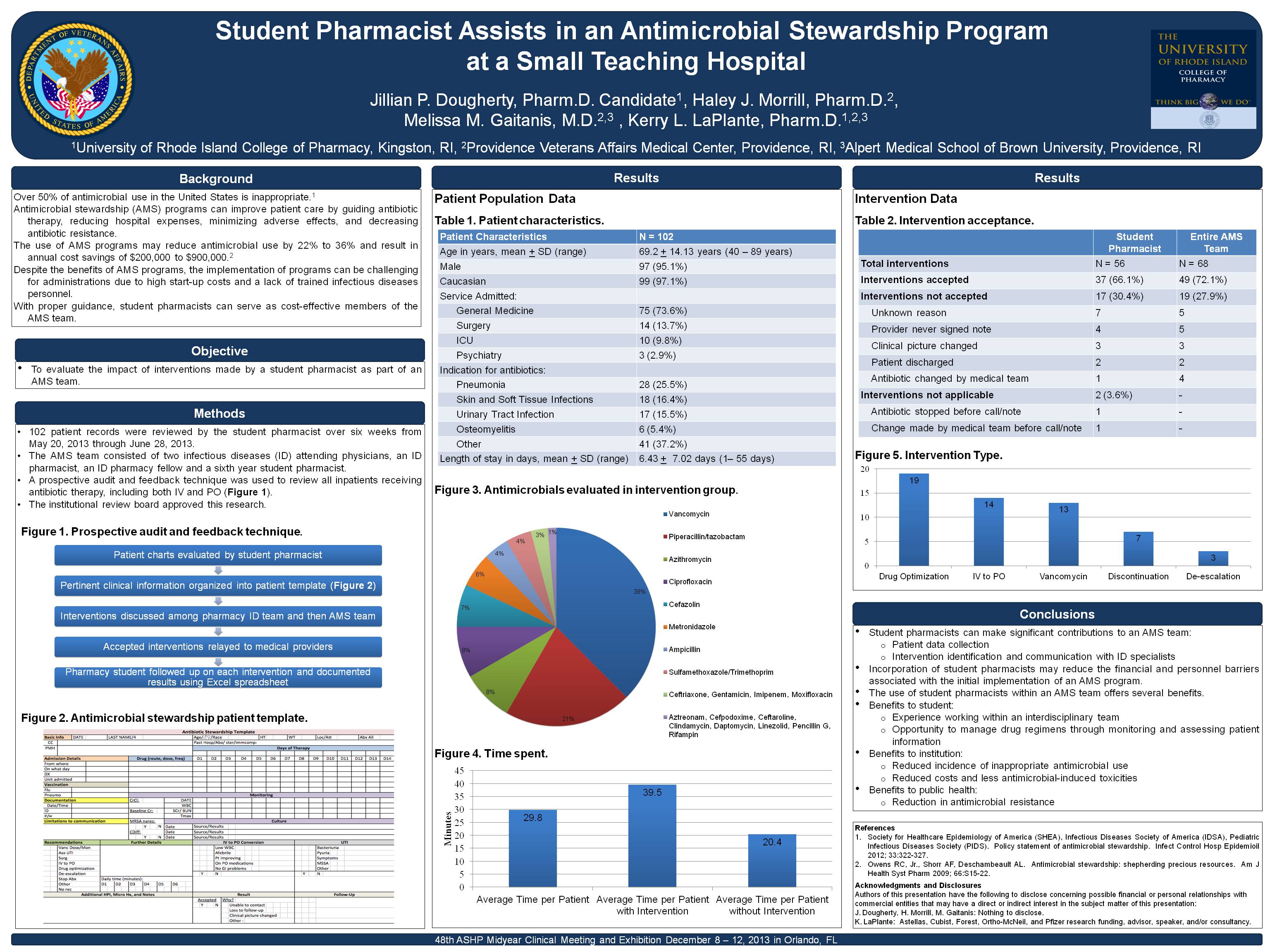- Presented at ASHP Midyear 2013
- Jillian P. Dougherty, Pharm.D. Candidate (1), Haley J. Morrill, Pharm.D. (2), Melissa M. Gaitanis, M.D. (2,3) , Kerry L. LaPlante, Pharm.D. (1,2,3)
Research
- Over 50% of antimicrobial use in the United States is inappropriate.1
- Antimicrobial stewardship (AMS) programs can improve patient care by guiding antibiotic therapy, reducing hospital expenses, minimizing adverse effects, and decreasing antibiotic resistance.
- The use of AMS programs may reduce antimicrobial use by 22% to 36% and result in annual cost savings of $200,000 to $900,000.2
- Despite the benefits of AMS programs, the implementation of programs can be challenging for administrations due to high start-up costs and a lack of trained infectious diseases personnel.
- With proper guidance, student pharmacists can serve as cost-effective members of the AMS team.
Related People: Kerry L. LaPlante
(1)University of Rhode Island College of Pharmacy, Kingston, RI
(2)Providence Veterans Affairs Medical Center, Providence, RI
(3)Alpert Medical School of Brown University, Providence, RI

